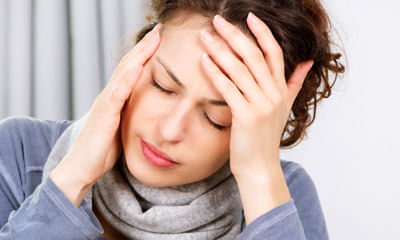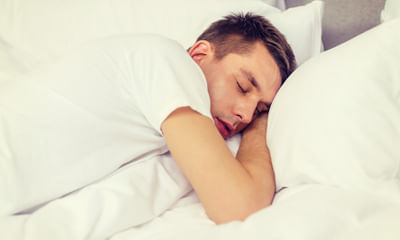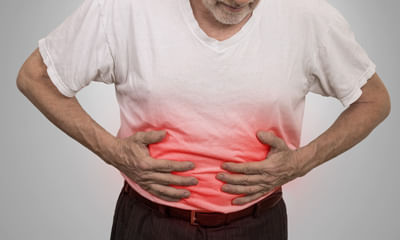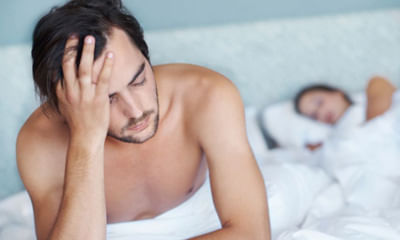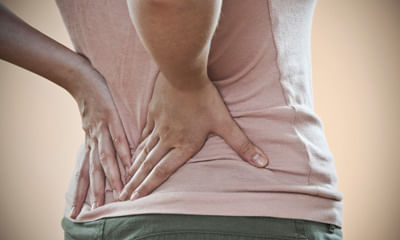How To Reduce Mental Tension
I am a physically disabled person. My late father looked after me and our family from day one. Due to some unusual circu ...
Ask Free Question
Hi! Try to live in a good environment with some support.... seek a safe and secure environment... Do not bother about the gossip of others talking about you, the more importance you give to others words you will start feeling insecure.... instead just ignore them and completely focus on good vibes in life be positive think good consistently.... Meditation, yoga, prayers to your beloved god will help you overcome this difficulty.... do not worry stay strong.... whenever you feel weak just utter gods name.... will give you immense strength both physically and mentally... take care..... with regards Psy.... MSV
Sir/madam, I am a 23 year old female of body weight 52 kg. From last 2 years I am having frequent headaches and dizzines ...
Ask Free Question
I empathize with the difficulties you've been enduring due to persistent headaches and dizziness over the last two years. These symptoms have evidently taken a toll on your daily life, and addressing them requires a comprehensive and thoughtful approach. Here are some essential aspects to delve into further: consult a healthcare professional: schedule an appointment with a doctor, preferably a neurophysician or an internal medicine specialist, to discuss your symptoms in detail. Comprehensive examination: a healthcare professional will likely perform a comprehensive examination, including a detailed medical history, physical examination, and may order relevant tests or imaging studies. Explore potential causes: chronic headaches and dizziness can have various causes, including migraines, tension headaches, vestibular disorders, or other underlying medical conditions. Identifying the root cause is crucial for appropriate management. Medication review: if you're taking any medications, including homeopathic remedies, inform your healthcare provider. Some medications may contribute to or interact with your symptoms. Lifestyle factors: discuss your lifestyle, including sleep patterns, stress levels, and dietary habits, as these can play a role in headaches and dizziness. Consider mental health: emotional well-being is integral to overall health. If stress, anxiety, or other mental health factors are contributing to your symptoms, your healthcare provider may recommend appropriate interventions. It's essential to convey the severity of your symptoms, the impact on your daily life, and any associated factors. A thorough assessment will guide the development of an appropriate treatment plan, which may include medications, lifestyle adjustments, or other interventions. Please seek prompt medical attention to address your concerns and find a suitable solution. If you need additional guidance, consider sending more details in a private consultation for more personalized advice.
I am a recovering porn (6 years) and alcohol (2 and half years) and ganja (1 and half years) addict. 1.porn and masturba ...
Ask Free Question
Hi, Lybrate user, you need to opt certain natural norms to overcome your depression and panic disorder ,permanently apart from medication.•go for a walk in the morning to regulate your blood circulation to clam your nerve to check your depression. •go for meditation to reduce your stress to inculcate a strong person from within to fight your depression and panic disorder. •be possitive, think possitive and act possitively. •your diet be easily digestible on time to avoid gastric diosrder that triggers mental fag, often. You need a private consultation for a better and faster recovery, till, then, take, homoeopathic medicine, underlying, please. @ ignatia 200-5 drops, thrice. •avoid, junk food, alcohol, nicotine. Tk, care.
Dr. I am an unmarred girl, I have got vaginal trauma because of finger, after that finger j I am having pain inside my v ...
Ask Free Question
Seek professional help: it's crucial to consult with a healthcare professional, such as a gynecologist or a urologist, who can assess your condition, conduct necessary examinations, and provide appropriate medical advice and treatment. Gynecologist or urologist: schedule an appointment with a gynecologist (if you are female) or a urologist (if you are male). They specialize in the reproductive and urinary systems and can diagnose any physical issues related to your vaginal pain or trauma. Therapist or counselor: consider seeking help from a mental health professional, such as a therapist, counselor, or psychologist. They can help you address any psychological or emotional concerns you have about sex or any trauma you've experienced. They can also provide strategies to manage fear and anxiety related to sexual activity. Sex therapist: if your fear and concerns are primarily related to sexual intimacy and your upcoming marriage, you may want to consider consulting a sex therapist. Sex therapists can assist with understanding and addressing sexual issues, fears, and concerns, and they can work with you and your partner to develop strategies for a fulfilling sexual relationship. Open communication: discuss your concerns openly with your future spouse. Good communication and understanding between partners are crucial for a healthy sexual relationship. Sharing your fears and concerns can help create a supportive environment and reduce anxiety. Physical therapy: if the pain is due to muscle tension or physical issues, a pelvic floor physical therapist might be able to help. They can provide exercises and techniques to relax and strengthen the pelvic floor muscles, which could potentially alleviate some of your pain.
My age is 19 now. I masturbate 4 times in a week. 1) can it hamper the growth of my penis? 2) how many times in a week, ...
Ask Free Question
Only twice a week is fine. Excessive masturbation may leads to the damage of nerves supplying penis. Which in future leads to quick ejaculation, weak erection or erectile dysfunction, shrinkage of penis, low sexual stamina, other than that whole body weakness, weak eye sight, loss of appetite, loss of facial lusture, weak digestion, low memory power, hairfall, anxiety, etc.
Sleeping problem always over thinking fear tension excessive crying without any reason. ...
Ask Free Question
Hi, Lybrate user, you need to opt certain natural norms to overcome your depression and panic disorder ,permanently apart from medication.•go for a walk in the morning to regulate your blood circulation to clam your nerve to check your depression. •go for meditation to reduce your stress to inculcate a strong person from within to fight your depression and panic disorder. •be possitive, think possitive and act possitively. •your diet be easily digestible on time to avoid gastric diosrder that triggers mental fag, often. You need a private consultation for a better and faster recovery, till, then, take, homoeopathic medicine, underlying, please. @ ignatia 200-5 drops, thrice. •avoid, junk food, alcohol, nicotine. Tk, care.
I started masturbation early in life and I feel it's an addiction. At 60 years I am still masturbate. I feel that I am o ...
Ask Free Question
Here are some steps you can take to address your concerns: seek professional help: consider talking to a therapist or counselor who specializes in sexual health and addiction. They can provide you with personalized guidance and support to manage your concerns effectively. Educate yourself: understanding the psychological and physiological aspects of addiction can be beneficial in overcoming it. Learn about the potential reasons behind compulsive behavior and explore coping strategies. Develop healthy habits: engage in activities that promote overall well-being and divert your focus from excessive masturbation. Exercise regularly, practice relaxation techniques like meditation or yoga, and maintain a balanced diet. Set boundaries: establish specific rules for yourself regarding masturbation. You might start by gradually reducing the frequency, allowing yourself to masturbate only at certain times or in certain situations. Find alternatives: instead of turning to masturbation when you feel the urge, find other activities that can help you release tension or stress, such as hobbies, socializing, or engaging in creative pursuits.
Last 5 year I am having gastric problem, after consultation many gastrointestinal, they suggested to meet psychiatrist. ...
Ask Free Question
Deep breathing: Practice deep breathing exercises when you start to feel anxious. Breathe in slowly through your nose, hold for a few seconds, and then exhale slowly through your mouth. Focusing on your breath can help you relax and reduce anxiety. Progressive muscle relaxation: This technique involves tensing and then releasing each muscle group in your body, one at a time. Start with your toes and work your way up to your head. This can help you become more aware of tension in your body and promote relaxation. Challenge negative thoughts: Anxiety often involves negative or catastrophic thinking patterns. When you notice yourself having negative thoughts, try to challenge them by asking yourself if there is evidence to support them. Look for alternative explanations or more balanced perspectives. Mindfulness and meditation: Practicing mindfulness and meditation can help you stay present and reduce anxiety. There are many resources available, such as guided meditation apps or online tutorials, that can assist you in learning these techniques. Regular exercise: Engaging in physical activity on a regular basis can help reduce anxiety and improve your overall well-being. Find an exercise or activity that you enjoy and make it a part of your routine. Seek support: Talk to someone you trust about your anxiety and panic attacks. Sharing your feelings with a supportive friend or family member can help alleviate some of the stress and provide emotional support. Avoid triggers when possible: Identify situations, people, or activities that tend to trigger your anxiety or panic attacks and try to minimize exposure to them. If avoidance is not possible, prepare yourself by using relaxation techniques or seeking professional guidance. Healthy lifestyle habits: Maintaining a balanced lifestyle can contribute to overall well-being and help manage anxiety. Get enough sleep, eat a nutritious diet, limit caffeine and alcohol intake, and prioritize self-care activities
I have been practicing masturbating for 15 years I am 25 years old now I feel a lot of weakness in my body my bones knee ...
Ask Free Question
Masturbation is a completely natural, safe and healthy practice. It has nothing to do with weakness or anything, rather it is beneficial for your sexual health. It does not have any deleterious effect on your physical or mental health both it short or long term. Your weakness or pain could be due to any other reason other than masturbation. It is quite common to see that people who are apprehensive about masturbation and it's ill effects, actually found to be suffering from anxiety disorder. So it's in your best interest if you consult a psychiatrist in-person who can assess you in detail and advise accordingly.
From 4-5 year I have 24 hour full body pain and fatigue and all tests are normal. 4-5 months ago aiims doctor diagnosed ...
Ask Free Question
Also called: fibrositis self-carephysical exercise aerobic activity for 20–30 minutes 5 days a week improves cardiovascular health. If injured, pursuing an activity that avoids the injured muscle group or joint can help maintain physical function while recovering. Stress management pursuing an enjoyable activity or verbalising frustration to reduce stress and improve mental health. Relaxation techniques deep breathing, meditation, yoga, rhythmic exercise and other activities that reduce symptoms of stress hydrotherapy using water to relieve pain, treat diseases and maintain health. For example, mineral baths and hot tubs. Stretching stretching exercises can improve flexibility and improve physical function. Graded exercise therapy physical exercise that starts very slowly and gradually increases over time. Massage relaxes tense muscles. Heat therapy using heat is an excellent way to help relax muscles and encourage blood flow to areas that are particularly painful. This can easily be done at home using dry or damp hot towels. Simply hold the towel against the affected area until you feel relief. Ultrasound an ultrasound uses sound waves to produce heat which improves blood flow to deep muscle tissue. It can be used to relieve pain, stiffness, spasms, and inflammation widespread muscle pain and tenderness. Symptoms requires a medical diagnosis widespread muscle pain and tenderness are the most common symptoms. People may experience: pain areas: in the muscles, abdomen, back, or neck pain types: can be chronic, diffuse, sharp, or severe pain circumstances: can occur at night gastrointestinal: constipation, nausea, or passing excessive amounts of gas whole body: fatigue, feeling tired, or malaise muscular: muscle tenderness, delayed onset muscle soreness, or muscle spasms sensory: pins and needles, sensitivity to cold, or sensitivity to pain mood: anxiety, mood swings, or nervousness sleep: difficulty falling asleep or sleep disturbances cognitive: forgetfulness or lack of concentration hand: sensation of coldness or tingling also common: depression, flare, headache, irritability, joint stiffness, painful menstruation, or tingling feet treatment consists of self care and therapy medication, talk therapy and stress reduction may help in controlling the symptoms. Self-carephysical exercise aerobic activity for 20–30 minutes 5 days a week improves cardiovascular health. If injured, pursuing an activity that avoids the injured muscle group or joint can help maintain physical function while recovering. Stress management pursuing an enjoyable activity or verbalising frustration to reduce stress and improve mental health. Relaxation techniques deep breathing, meditation, yoga, rhythmic exercise and other activities that reduce symptoms of stress therapies support group a forum for counseling and sharing experiences among people with a similar condition or goal, such as depression or weight loss. Biofeedback controlling the body's heartbeat, brainwaves, breathing and blood pressure by monitoring them with sensors. Cognitive behavioral therapy a talk therapy focused on modifying negative thoughts, behaviours and emotional responses associated with psychological distress. Hydrotherapy using water to relieve pain, treat diseases and maintain health. For example, mineral baths and hot tubs. Chiropractic treatment techniques adjusting the spine and massaging the back muscles to relieve pain. Stretching stretching exercises can improve flexibility and improve physical function. Graded exercise therapy physical exercise that starts very slowly and gradually increases over time. Massage relaxes tense muscles. Acupuncture insertion of needles into specific points on the body to relieve pain and treat other conditions. A form of traditional chinese medicine. Medications selective serotonin reuptake inhibitor (ssri) eases symptoms of depressed mood and anxiety. Analgesic relieves pain. Nonsteroidal anti-inflammatory drug relieves pain, decreases inflammation and reduces fever. Nerve pain medication blocks pain caused by damaged nerves. Muscle relaxant reduces muscle tension and helps relieve muscle pain and discomfort. Fibromyalgia medications can help reduce the pain of fibromyalgia and improve sleep. Common choices include: •pain relievers. Over-the-counter pain relievers such as acetaminophen (tylenol, others), ibuprofen (advil, motrin ib, others) or naproxen sodium (aleve, others) may be helpful. Your doctor might suggest a prescription pain reliever such as tramadol (ultram). Narcotics are not advised, because they can lead to dependence and may even worsen the pain over time. •antidepressants. Duloxetine (cymbalta) and milnacipran (savella) may help ease the pain and fatigue associated with fibromyalgia. Your doctor may prescribe amitriptyline or the muscle relaxant cyclobenzaprine to help promote sleep. •anti-seizure drugs. Medications designed to treat epilepsy are often useful in reducing certain types of pain. Gabapentin (neurontin) is sometimes helpful in reducing fibromyalgia symptoms, while pregabalin (lyrica) was the first drug approved by the food and drug administration to treat fibromyalgia. Therapy a variety of different therapies can help reduce the effect that fibromyalgia has on your body and your life. Examples include: •physical therapy. A physical therapist can teach you exercises that will improve your strength, flexibility and stamina. Water-based exercises might be particularly helpful. •occupational therapy. An occupational therapist can help you make adjustments to your work area or the way you perform certain tasks that will cause less stress on your body.


